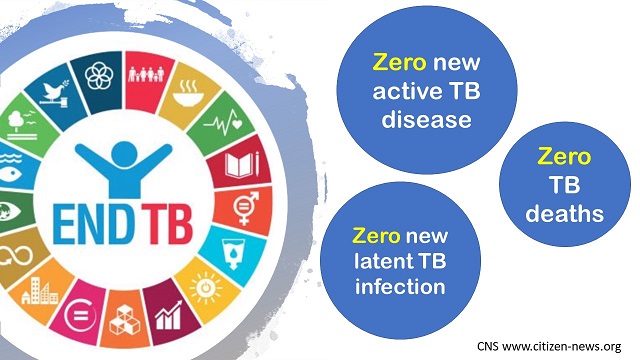By Muhammad Amaan with agency report
A Professor of Public Health, Toyin Togun has lamented that tuberculosis accounts for a high percentage of child mortality, morbidity and disability in West Africa.
He said while there is a reduction in incidences of vaccine-preventable diseases in children, the larger proportion of diseases caused by infectious pathogens is now attributable to tuberculosis.
The World Health Organisation (WHO) ranked TB as the ninth leading cause of death worldwide and the leading cause of a single infectious agent, ranking above HIV/AIDS.
According to WHO, in 2022, Africa had around one-third (320,000 children) of all TB cases among children between 0 and 15 years of age worldwide with over 25 per cent of TB deaths occurring in the African Region.
Speaking exclusively with PUNCH Healthwise, Togun, who is a professor of Global Public Health at the London School of Hygiene and Tropical Medicine, said the prevalence of drug-resistant tuberculosis in West Africa is higher than the WHO estimates.
According to him, TB is no longer just a disease of the elderly; it is now a major cause of childhood morbidity and mortality in Africa.
The senior scientist at the Medical Research Council Unit in the Gambia, however, said the West African Network for TB, AIDs, and Malaria is focusing more research on paediatric tuberculosis.
“The TB network is one of the main work packages of the WANETAM. The focus is on building capacity, and research capacity in West Africa.
“West Africa has a unique epidemiology of tuberculosis, as well as human population genetics. Because three of the 30 eyeballing countries for tuberculosis are in West Africa; three of the 30 burden countries for HIV-assisted tuberculosis are also in West Africa.
“So, within the consortium, we’re able to work together, building, bringing together institutions and researchers from both anglophone, francophone, and lusophone countries in West Africa to work together in developing the capacity of early mid-career researchers and to attract grant funding for research based on locally defined priorities in West Africa.
“The WANETAM network, specifically the TB work package is also the only regional network with a focused programme of research on paediatric tuberculosis.
“With the reduction in incidences of vaccine-preventable diseases in children, such as measles and pneumonia, tuberculosis is becoming increasingly responsible for a larger proportion of childhood mobility and mortality.
“So, we have a focused programme of research on how to improve the diagnosis of tuberculosis in children, how to prevent tuberculosis in children, and we are doing this in collaboration with national health institutions and tertiary level hospitals in West Africa.”
On drug resistance TB, the scientist said, “We’ve carried out a multi-country research on that across West Africa and it showed that the prevalence of drug-resistant tuberculosis in West Africa is higher than the WHO estimates.
“So right now, we are building a particular molecular epidemiology platform that will use next-generation sequencing and other genomic approaches to understand the molecular epidemiology of drug-resistant tuberculosis. It will give us more information towards improving the diagnosis and controlling drug-resistant tuberculosis in West Africa.”




